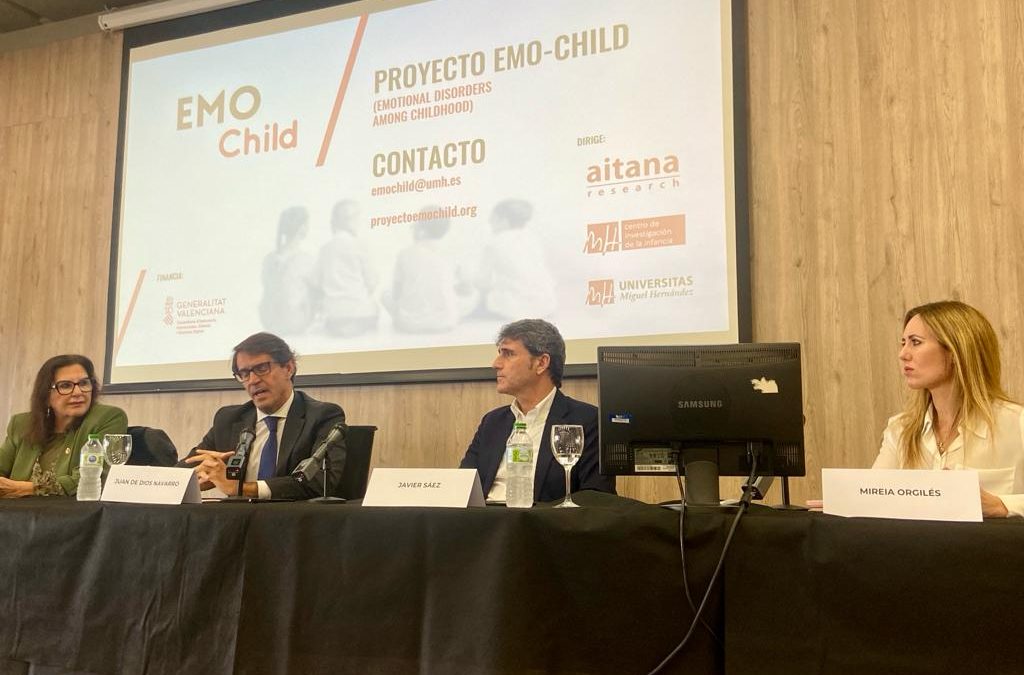Expert psychologists and researchers gathered today at the Miguel Hernández University (UMH) to address the problem of mental health in children and adolescents in Spain. The scientific-professional conference, entitled “Mental health in childhood and adolescence: Global actions in the face of a complex problem”, has highlighted the importance of the EMO-CHILD project (Emotional Disorders among Childhood) in the evaluation of mental disorders in the age range from 8 to 16 years in all Spanish autonomous communities.
Professor Mireia Orgilés, one of those responsible for the EMO-CHILD project, presented revealing data obtained from the first samplings. Parents of children expressed concern about issues such as addictions, anxiety, lack of willpower, competitiveness, rejection, suicide, and self-esteem. Surprisingly, the children, when consulted, revealed that their main reasons for sadness derive from loneliness and the lack of affection and communication in their families.
In the case of adolescents, problems related to low tolerance for frustration and the need for immediacy were identified. Significantly, the adolescents themselves recognized that their self-esteem problems are directly linked to social networks.
The EMO-CHILD project, carried out by the AITANA research group at the UMH, aims to collect data from approximately 6,500 participants over three years. This will be done through self-reports from schoolchildren in more than a hundred educational centers throughout the country, thus establishing a pioneering study to evaluate emotional problems in the child and youth population in Spain.
Concepción Sánchez Beltrán, vice dean of the College of Psychology of the Valencian Community, emphasized the need for more professionals in the educational and health fields to reduce late diagnoses. “Mental health in childhood and adolescence should be a right,” she said.
In the presentations and discussion tables, experts such as Mateu Servera and José Antonio Piqueras highlighted the importance of the family and educational environment in addressing the psychological problems of childhood. The intervention was proposed with a comprehensive protocol in educational centers, highlighting the urgency of having clinical psychologists specialized in this area.
In this context, school psychologists called for the need to regulate the use of mobile phones in educational centers as part of the measures to address the mental health challenges of adolescents.

